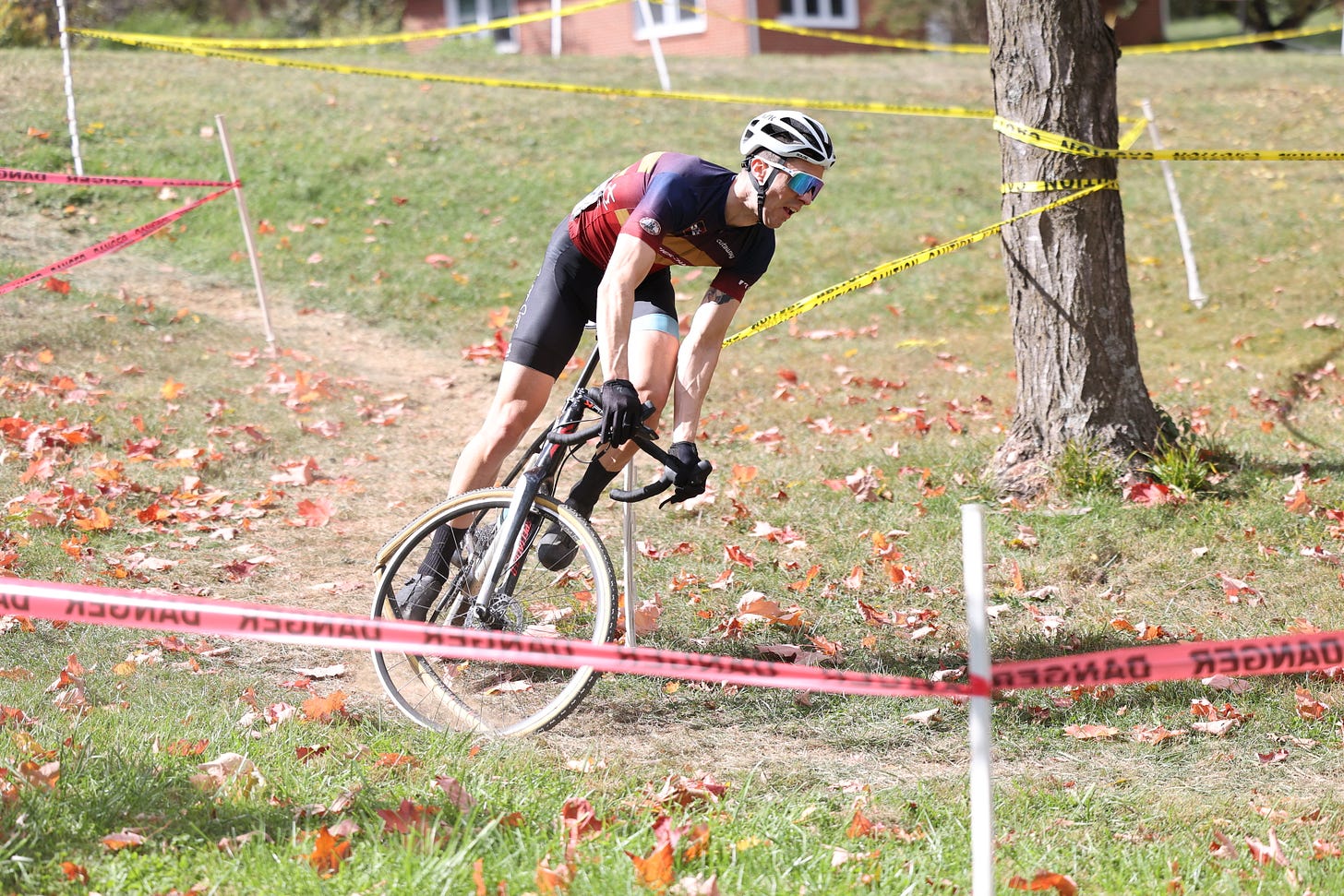It's Okay To Freak Out Sometimes
If it works for Olympians, it can work for us amateurs.
Last week Tom Pidcock was having a great day. He was leading the Olympic men’s mountain bike race and looked poised to repeat as champion after winning gold in 2021.
Then, halfway through, his front tire went flat. Pidcock pulled into the pit and immediately started bleeding ground. His advantage turned to into a 40-second gap from the leader, which may not sound like much, but on a course with limited places to pass and only ~45 minutes left to race, 40 seconds was a substantial deficit.
By the time his mechanics were able to replace his wheel, Pidcock had dropped to ninth place. And still, the entire time he was watching his rivals fly past him, Pidcock could not have looked less bothered.
Moving with the urgency of an Italian waiter, Pidcock ate a gel, took down some water and waited for his crew to swap out his wheel. He was staring down being truly robbed by poor circumstance, and he kept his composure through all of it.
Pidcock chased back on and started picking off riders one by one. On the final lap, he retook the lead and held on to win gold.
After the race he said he “reset” after the puncture, which I take to mean as some sort of factory protocol since Pidcock might be a robot.
The Olympic road race was a few days later.
With nine miles to go, Remco Evenepoel broke free from the lead group on a climb. It took 6+ hours but he snapped the elastic and built a ~75 second gap from the next chasing group. Evenepoel had already won gold in the time trial a week prior, meaning he is uniquely able to hold a steady, hard effort, all alone, for a long time. Going solo in the road race was the ideal scenario for Evenepoel, and he was on his way to bringing home two gold medals.
He approached the Louvre with 2.5 miles to go, and he put his hand up. The commentators thought he was celebrating early.
He wasn’t. His rear tire had flatted.
He hopped off the bike and started gesticulating like he was in a life-or-death game of charades. That minute-long gap from the field was evaporating, each passing second bringing him a step closer to losing a medal in grotesquely heartbreaking fashion. Evenepoel acted like that was was happening. He started yelling, scrambling all over the road, looking for the Belgian team car.
At that point in a race, mechanics don’t even bother swapping out a wheel — that’d cost too many precious seconds. They just rip a whole-ass bike off the roof of the car and hand it to the rider. Evenepoel grabbed the bike, which was clearly not his size or usual ride, and hopped on. It took him a while to clip in, something I imagine was caused by the avalanche of adrenaline and panic washing over him.
He sprinted back up to speed. At this point, settling back down into a sustainable effort is near impossible, but Evenepoel was able to smash the pedals for the last 2.5 miles.
As he came across the line in first, he again dismounted and stood behind his bike, arms outstretched with the Eiffel Tower in the background, clinching not only gold but also an iconic victory salute photo.
The time gap from Evenepoel to the rest of the field? Around 75 seconds, the same it was when he’d flatted.
I try to come by stressful situations, especially those in bike races, with an even keel, an understanding that there’s no use in panicking. There is value in keeping calm when things fall apart, and I want to believe I can be like Pidcock when I need to.
But sometimes peace is not an option. Sometimes the bag of squirrels in my brain break contain and go nuts. Sometimes I feel like Evenepoel on the side of the road, absolutely freaking out.
I think keeping calm is what we ought to aspire to, but sometimes snapping a little bit and letting adrenaline take over can be just as effective. Just ask Evenepoel.




